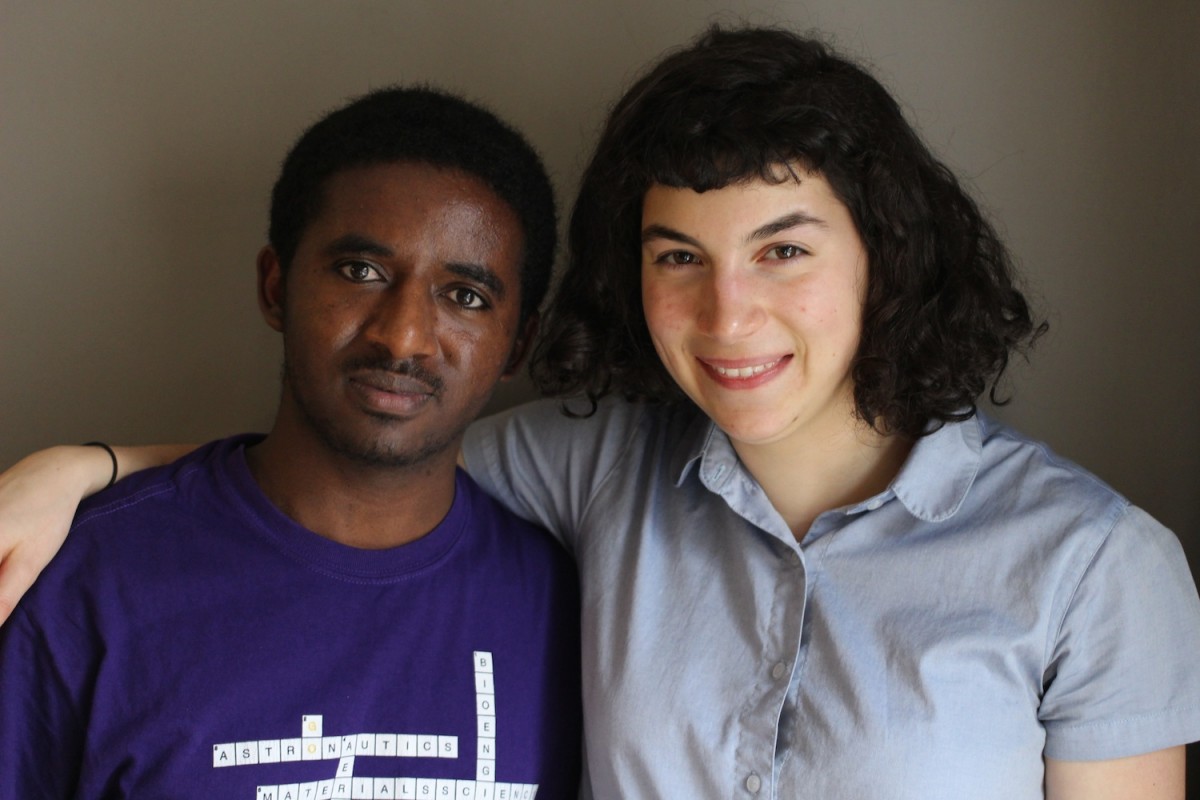Written by Jenn Martinis, Firesteel Advocacy Volunteer
Solomon Muche, a refugee from Ethiopia, talks to his mentor, shelter volunteer Elizabeth Stein, about his family’s experience with homelessness in the newest StoryCorps “Finding Our Way” story to air on KUOW. I urge you to listen to Solomon’s moving story, which airs during KUOW’s program The Record today. You can also listen online.
The Muche family came to the U.S. in September 2012, when Solomon was 14 years old. That December, his parents could no longer afford their rent, and together with Solomon and his three younger brothers and sister, they were evicted.
Solomon is clearly an extraordinary person who, despite the hardship he experienced, was able to remain hopeful and focused on future opportunities. He studied for the SAT, worked hard, and looked toward education as a way to secure his future. He was also fortunate to find support in a volunteer mentor at the shelter.
In 2014, Solomon was admitted to the bioengineering department at the University of Washington at the age of only 16. It was exactly two years since he had arrived in the U.S. with his family.
Solomon’s story ended well; his family found a shelter and eventually a home. He persevered and realized his dream of a college education.
For many young people who experience homelessness, their stories do not end so well. Homelessness hurts children in many ways, and often negatively affects their classroom performance. According to Columbia Legal Services, only 45.1 percent of homeless Washington students graduated in the class of 2013, compared to 78 percent of their housed peers.
Unique challenges for refugees
Achieving stability and then working toward a better future is difficult for anyone who experiences poverty; the refugee population faces unique challenges. A helpful FAQ on the Refugee Women’s Alliance (ReWA) website explains:
Immigrants step off the plane with little more than the clothing on their back and the hope for a brighter future. Refugees come from traumatic experiences and work extremely hard to rebuild their lives in the U.S. For many refugees, the initial transition to life in the U.S. is difficult. Most newly arrived refugees face language barriers and struggle to secure living-wage employment. As a result, many refugees are at risk of homelessness, suffer from loneliness and depression, and face great instability.
Recognizing the challenges that newly arrived refugees face, all refugees receive limited assistance from the U.S. government and up to 90 days of assistance from resettlement agencies.
Since 1984, King County has been the fifth-largest recipient of refugees in the U.S. Refugees often face an uphill battle, but many, like Solomon, are incredibly resilient and — with community support — find ways to achieve their dreams. As I continue to become more educated on the causes of homelessness, stories like Solomon’s give me hope that through perseverance maybe we can all find a solution for homelessness in our community.
Get involved
Have the “Finding Our Way” stories inspired you to help families who are experiencing homelessness?
- Start by sharing these stories with your friends, family, and policymakers.
- Advocate for investment in affordable homes and programs that help our most vulnerable neighbors. Send a message to your state lawmakers using this template created by the Washington Low Income Housing Alliance.
- Check out a list of 10 things you can do to help, compiled by Seattle University’s Project on Family Homelessness.
Hear more stories
- Listen to more “Finding Our Way” stories produced by StoryCorps on KUOW every Tuesday, now through July 7, or online.
- Find even more “Finding Our Way” stories, produced by Seattle University’s Project on Family Homelessness and Firesteel, here on the Firesteel website.
- Stream other StoryCorps conversations on the StoryCorps website, or subscribe to the StoryCorps podcast.
